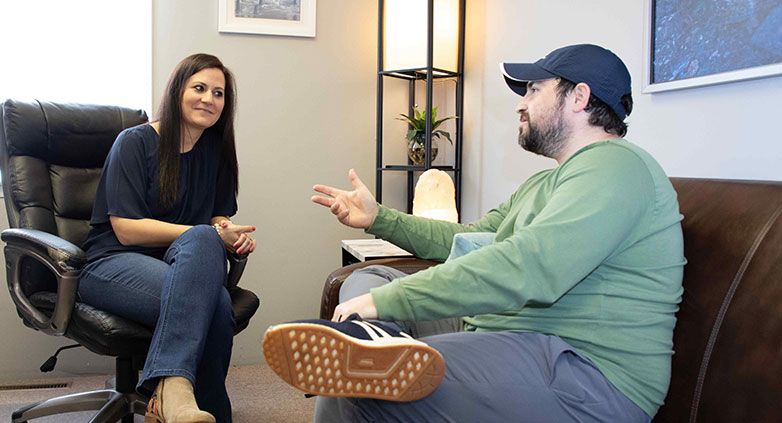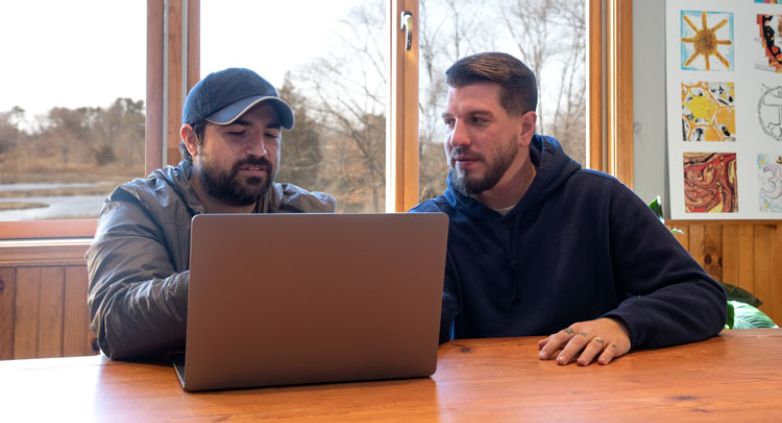
How to Help a Family Member with Addiction – 10 Essential Tips
When someone you love is battling addiction, it can leave you feeling helpless, overwhelmed, and unsure of where to begin.
With over 48 million Americans struggling with substance use disorders, addiction is not just a personal crisis—it’s a widespread family issue affecting countless households across the country.
If you’ve found yourself searching for answers, you’re not alone.
This article provides a clear, compassionate roadmap with 10 practical steps to help you support a family member facing addiction.
From recognizing the early signs and understanding the science behind substance abuse to exploring treatment options and protecting your own well-being, each section is designed to empower you with the tools, insights, and support you need to navigate this difficult journey—together.
The problems of substance abuse are not bigger than all of us. If you have a parent, child, friend, or sibling who abuses drugs, alcohol, or gambling, this guide is for you.
Outlined below are 10 things that you can do to help a family member with addiction:
- Recognize the Signs of Substance Abuse Disorders
- Educate Yourself on the Realities of Substance Abuse
- Offer Support Without Enabling
- Communicate Effectively
- Encourage Treatment
- Explore In-Home Recovery Services
- Support Recovery at Home
- Utilize Family Therapy
- Join Support Groups
- Stay Hopeful and Encouraging
Real people. Real support.
Seeking Help for Yourself or a Loved One?
Connect with our professionals to start the journey to recovery.
Call 860.388.9656 for immediate support.

1. Recognize the Signs of Substance Use Disorders
Prevention is one of the best ways to mitigate drug or alcohol addiction.
If you can intervene before the situation becomes too serious, you may be able to save yourself and your community a lot of pain.
There are 3 early signs that predict future substance abuse:
- Family history
- Being drawn to a substance
- Loss of control around the substance
If you think your loved one may be addicted to drugs or alcohol, here are 12 signs that someone needs help to overcome their SUD:
- Loss of interest in things that were once important to them
- Retreating from relationships and community engagements
- Engaging in risky behavior in order to acquire drugs or alcohol
- Missing large amounts of work
- Chronic fatigue from loss of sleep
- Engaging in secrecy about their substance use
- Cognitive decline, memory loss, or slurring of words
- Changes in weight
- Bloodshot eyes, trembling, or sweating
- Sudden, unpredictable mood swings
- Aggressive behavior, especially surrounding their substance use
- Money problems that may lead them to extort or steal from their loved ones
2. Educate Yourself on the Realities of Substance Abuse
Learning how to help a family member with addiction begins by understanding the realities of substance abuse.
You should educate yourself on how it affects the brain because this will help you address your loved one’s behavior.
When someone is dependent on drugs or alcohol, their brain gets hijacked. The substances act on the pleasure center of the brain, which rewires the brain to only get dopamine through drugs or alcohol.
This causes the brain to crave substances because it can’t get dopamine from other, healthier activities.
It is also important for you to understand that addiction isn’t about willpower, nor is it a choice. It is a disease that requires love, support, and understanding to effectively treat.
3. Offer Support Without Enabling
It is common for the parents, siblings, and children of addicts to withdraw all support because they don’t want to risk enabling the destructive behavior. However, it is possible to support someone with a SUD without enabling it.
For example, instead of giving them money, which they will likely spend on drugs or alcohol, consider bringing them groceries, taking them shopping for necessities, or inviting them to join you on fun activities.
Keep affirming your love for them, but never weaponize it against them.
You should never say “if you really loved me, you’d quit” because that creates guilt, which can make them crave drugs or alcohol.
Instead, tell them you love them and keep reaching out your hand, even if they don’t always respond.
4. Communicate Effectively
Household dysfunction, secrecy, and lying often exacerbates substance abuse.
To prevent this, all the people around the addict need to practice effective communication with them and with each other.
When you engage with the person who has the SUD, you should always:
- Set clear boundaries and respond as promised if those boundaries are violated
- Be kind and loving
- Communicate how their behavior makes you feel using “I” statements
- Never accuse, insult, or belittle them
- Make sure to listen to what they are trying to communicate and show that you are trying to understand
You and your support network should practice effective communication with each other by:
- Always being honest about the addicted person’s behavior and actions. Do not lie to cover for them.
- Do not place blame for their actions on other people
- Share how the behavior makes you feel
- When you notice dysfunction, point it out to everyone and discuss ways of fixing it
- Avoid using stigmatizing language when discussing substance abuse. Try to always use medical terms to clearly define what is happening

5. Encourage Them to Get Treatment
Everyone wants their loved ones to get treatment and maintain their sobriety so that they can live a happy, healthy life.
However, it is important to provide encouragement in the correct tone and in a helpful way.
You should avoid forcing them into treatment, giving them a strict ultimatum, and having an all-or-nothing mentality.
Instead, consider approaching the topic with compassion. Be aware that it can take time and several different tries to begin the recovery process.
Here are 7 ways that you can aid this journey:
- Help them research treatment options
- Celebrate their milestones with them
- Accompany them to meetings and consultations
- Locate their triggers and make a plan with them to avoid those triggers
- Be a safe space for them
- Help them discover or rediscover activities and passions
- In the case of a relapse, keep supporting them without showing shame or disappointment
6. Explore In-Home Recovery Services
There is no one-size-fits-all model for substance abuse recovery.
Different types of treatment programs can work for some people but not others. As you navigate how to help a family member with addiction, you should look into your local treatment options.
Project Courage offers in-home recovery services in Connecticut. There are 5 key benefits to this type of program:
- Addiction is a family disease, so the environment that created the disorder must be addressed for recovery to be successful.
- It is easy to stay sober when someone is in a recovery facility, away from all their triggers, but the experience may not prepare them for staying sober in their everyday life.
- In-home programs allow people to heal in a familiar environment with their support network nearby.
- People don’t have to miss work or school, which can create additional stressors when they recover at home.
- Recovering at home allows the person to rebuild and reorganize their life in a way that does not include drugs or alcohol.
Free Download
Proven Programs for Lasting Recovery
Receive your free guide to understanding alcohol addiction and discovering recovery programs tailored to you. Learn how to build a personal sobriety plan and get support every step of the way.
7. Support Recovery at Home
Regardless of where your loved one began their recovery – at home, with out-patient services, or at a rehab facility – they will need on-going support at home.
The most important thing that you can do is to express your love for them and provide a space free of triggers.
You can also offer support by driving them to meetings or attending meetings with them, helping them navigate the technical elements of recovery like insurance, re-involve them with extended family members, and help them discover new activities.
8. Utilize Family Therapy
Therapy is an important tool in substance abuse recovery.
When it comes to how to help a family member with addiction, attending therapy with them can make a big difference.
When there is substance abuse in a household, it is normal for the different group members to take on dysfunctional roles.
These roles can perpetuate SUD and can even when treatment is well underway. For the household to become a safe place for long-term sobriety, everyone must break out of their roles and heal together.
9. Join a Support Group
Supporting a loved one through treatment can take a heavy toll on your mental health. It is important for the family to remember self-care and to seek support for what they are going through.
Since addiction is so isolating, it can be beneficial to join a support group to connect with other people in your situation. In a support group, you can receive emotional support, get tips from people who have gone through what you are going through, and hear positive stories to give you hope.
If you live in Connecticut, contact Project Courage to learn more about our family support services.
10. Stay Hopeful and Encouraging
Your addicted loved one might not say it out loud, but your hope and encouragement means everything to them.
Sobriety is a long journey that most people can’t make alone. Always try to be encouraging and offer to help in any way that you are able to.
While your family navigates this process, keep in mind that the numbers are on your side: the majority of people with SUD go on to recover and live happy, healthy, successful lives.
Helping vs. Enabling: A Practical Guide for Families
When addiction is in the picture, even the most caring gestures can either move a loved one toward recovery or keep them trapped in the cycle. Use the guide below to make sure your support is truly helpful.
Quick Self-Check: Are My Actions Helpful?
- Could this reduce natural consequences of using?
If yes, rethink the action—consequences often motivate change. - Am I doing something they can reasonably do for themselves in recovery?
Genuine help builds independence; enabling breeds dependence. - Does this align with their treatment goals (or move them closer to starting one)?
If not, consider redirecting your effort.
Turning Enabling into Helping
- Replace cash with concrete support. Offer to pay directly for therapy, medication, or healthy activities.
- Hold the boundary, then add empathy. “I still won’t lend you money, but I’ll drive you to tonight’s meeting.”
- Create a family accountability plan. Agree—preferably with a counselor—on what each member will and won’t do.
- Use professional backup. When unsure, consult an addiction counselor or join groups like Al-Anon or SMART Family and Friends for real-time advice.
By pairing firm boundaries with unwavering compassion, you help your loved one face reality while knowing they’re not alone—an essential balance for lasting recovery.
Real people. Real support.
Seeking Help for Yourself or a Loved One?
Connect with our professionals to start the journey to recovery.
Call 860.388.9656 for immediate support.
What Recovery Programs Are Available in Connecticut?
Project Courage is a drug and alcohol recovery program in Connecticut.
When people start wondering how to help a family member with an addiction, our center is usually their first call. We offer the following services for substance abuse disorder treatment:
In-Home Recovery Services (IHRS)
IHRS allows people to receive treatment in the comfort of their own homes. This approach is ideal because it allows people to stay with their support system.
There is no fear or judgment, which can be present for people entering a clinical setting. When someone receives this service, their custom care team works with them in their home to facilitate SUD recovery.
Intensive Outpatient Programs (IOP)
Intensive Outpatient Programs are similar to IHRS because the person remains at home and can continue to work or go to school.
IOP offers a more intense level of support than IHRS. Instead of seeing your care team a few times a week, you get 3 hours a day of treatment. This approach is beneficial for patients who have mental health challenges that exist alongside their addiction. There are also options for patients to start with IOP and then graduate to a different level of support as they rebuild their lives.
Family Therapy
Substance abuse causes and is caused by dysfunction in the household. The best way to help a loved one stay sober is to heal the family dysfunction.
Therapy is a great way for everyone in the household to process their feelings about addiction, how it impacted them, and make a treatment plan for moving forward.
Individual & Group Therapy
Therapy is an important tool for people overcoming addiction.
Project Courage tailors the type of therapy to each case. In these sessions, patients can:
- Process the hurt and trauma that may have contributed to substance use
- Identify their triggers
- Work through their feelings about drugs and alcohol
- Improve their mental health
- Learn to forgive themselves
- Develop healthy coping mechanisms
- Receive support
After a patient has graduated from the program, there are aftercare options available to them to continue group therapy or get a referral to nearby meetings.
How to Help a Family Member with Addiction – Frequently Asked Questions
The best way to help is to learn about alcoholism and offer support without judgment. It can help to refrain from drinking in front of that person and only invite them to alcohol-free gatherings. If the person is ready, you can help them locate treatment resources.
You can best help by not enabling the behavior. Friends and relatives should keep communication open with the addict and with each other. It is best to never cover for a person with a SUD. Instead, maintain healthy boundaries, help them out by buying them needed items instead of giving them money, and researching their treatment options.
Addiction and depression go hand in hand. The family should help the person find suitable treatment options, whether it is therapy, mental health medication, detox, an intensive program, or attending support groups. In the meantime, everyone should keep trying to include them in activities and be ready to listen without judgment.
The 4 C’s of addiction are Craving, Loss of Control, Compulsion, and Continued use despite negative Consequences—key behaviors that signal substance use has moved beyond casual use to dependence.
Free Download
Proven Programs for Lasting Recovery
Receive your free guide to understanding alcohol addiction and discovering recovery programs tailored to you. Learn how to build a personal sobriety plan and get support every step of the way.
Begin the Intake Process Today!
Addiction sends shock waves through entire families, but informed, compassionate action can turn the tide.
By recognizing early warnings, maintaining firm yet loving boundaries, and pairing family support with professional care, you give your loved one—and yourself—the best chance at lasting recovery.
Community solidarity helps, but expert guidance accelerates real change.
If someone you care about is battling substance use, don’t wait for another crisis.
One conversation could become the turning point that restores hope and health to your whole family.
Reach out to Project Courage for a confidential consultation and insurance verification today.


